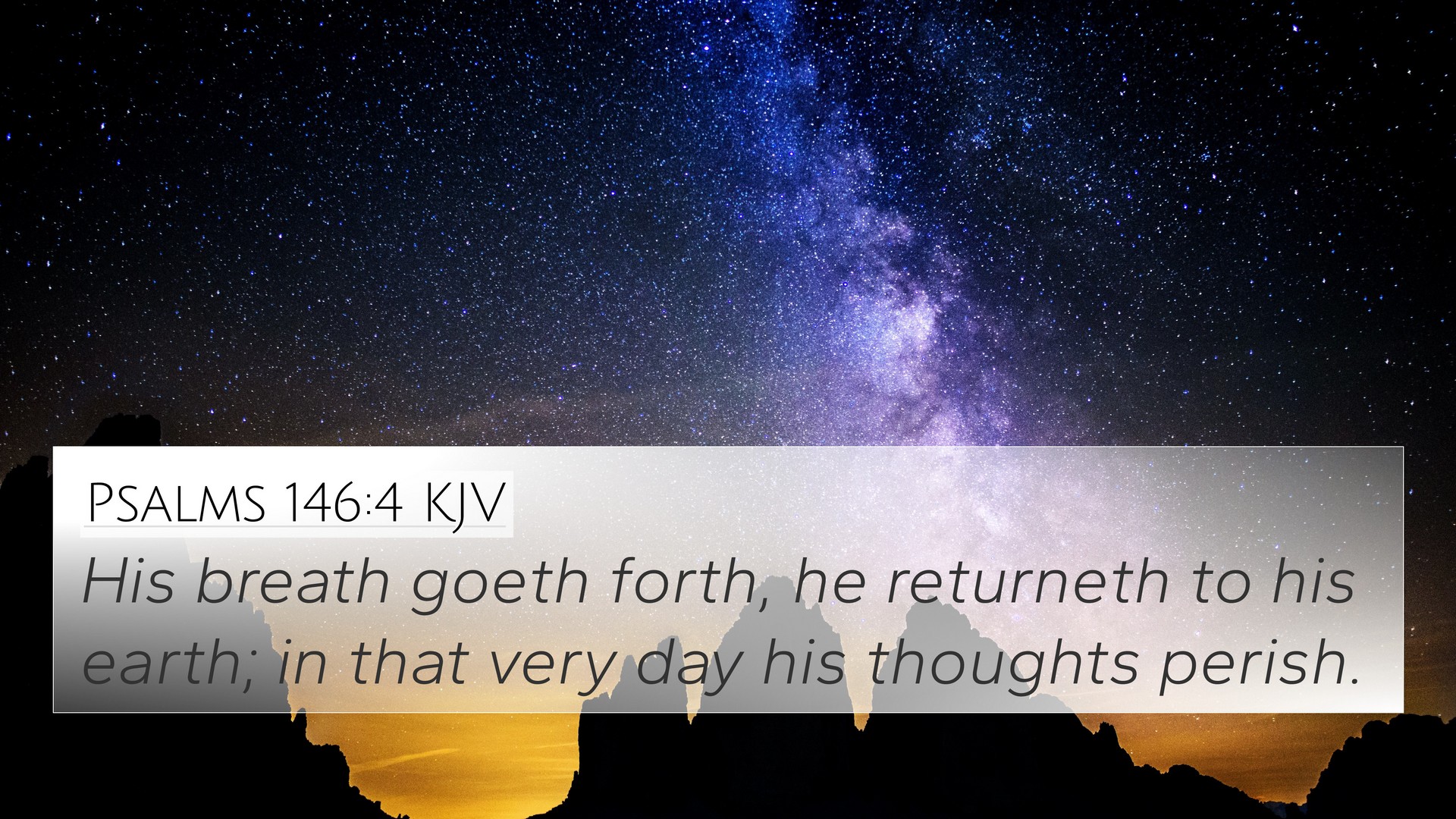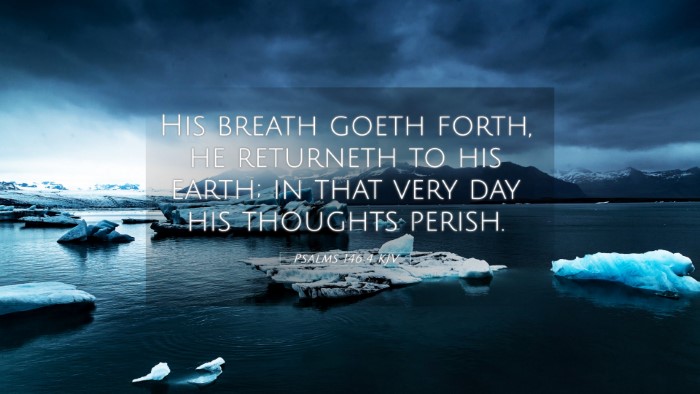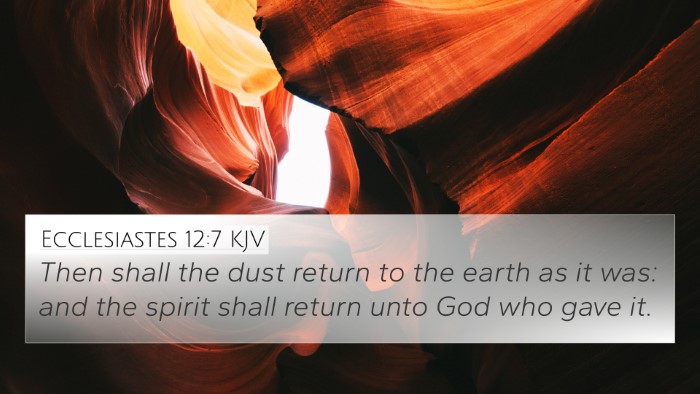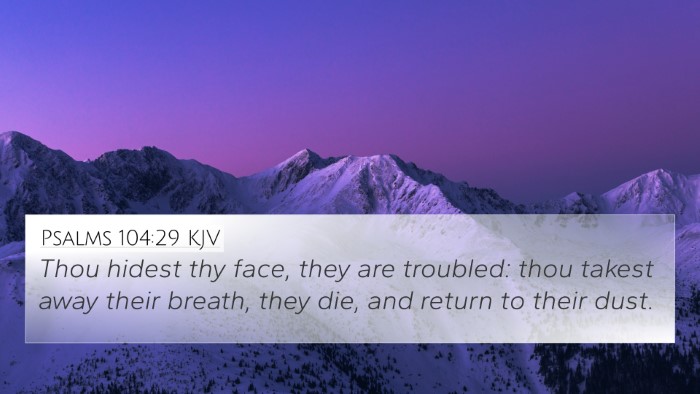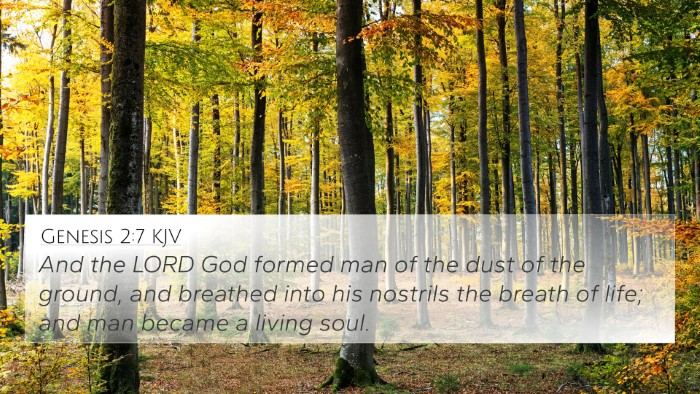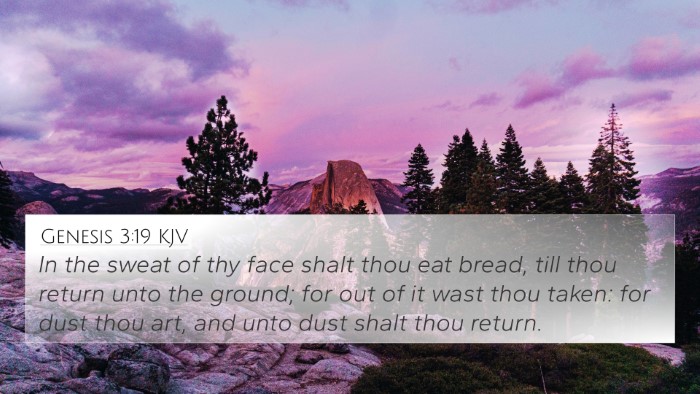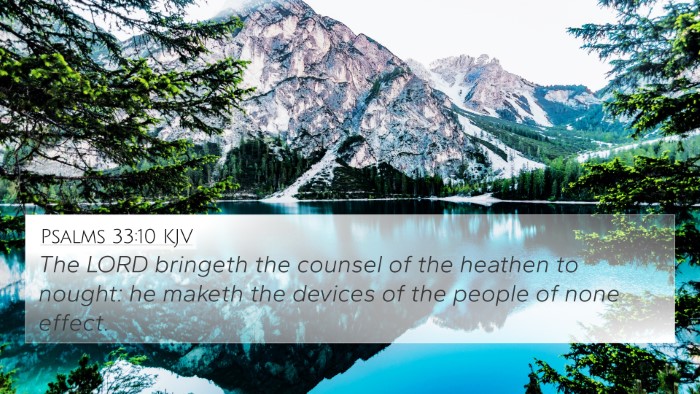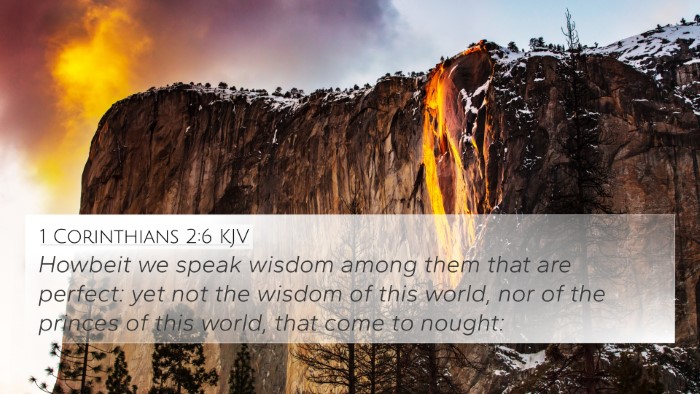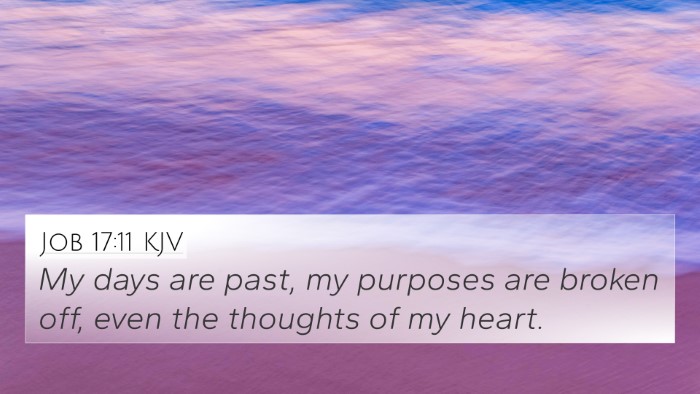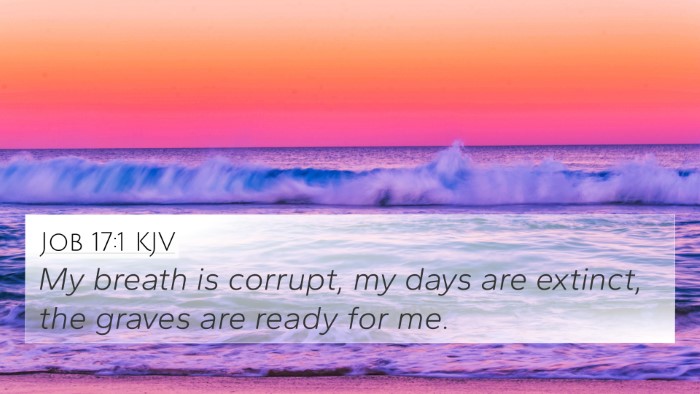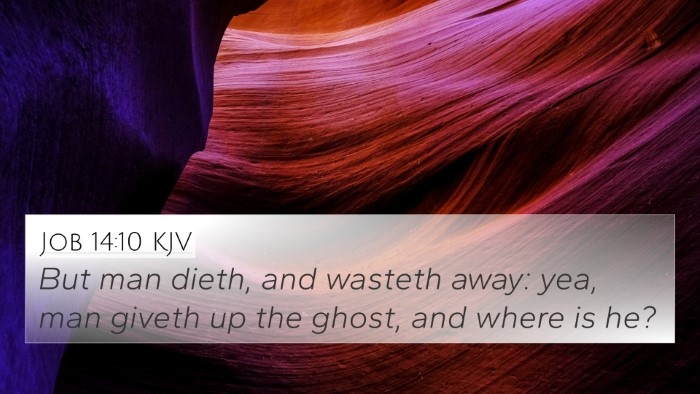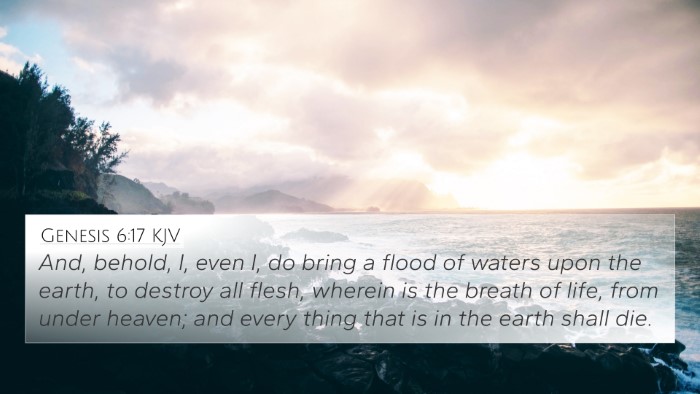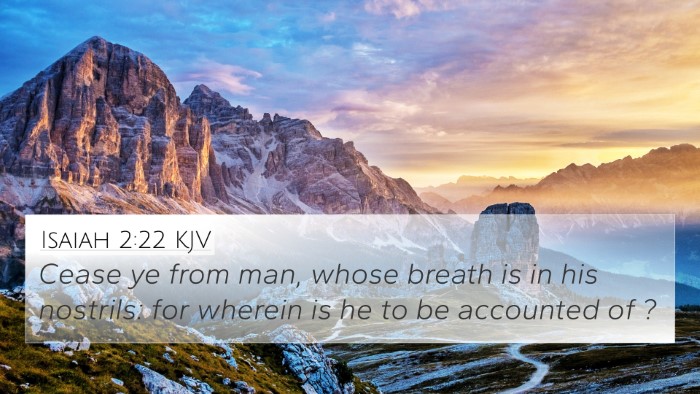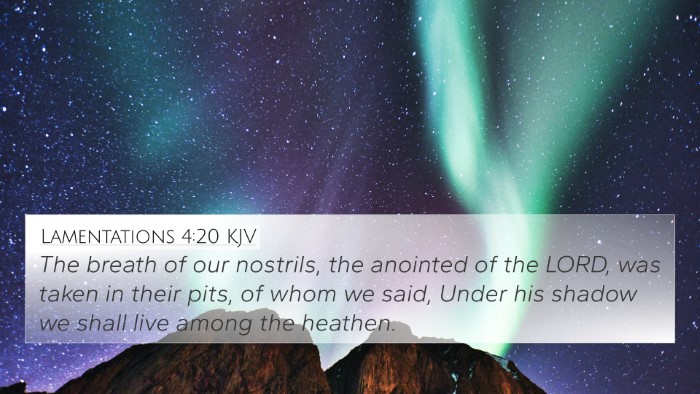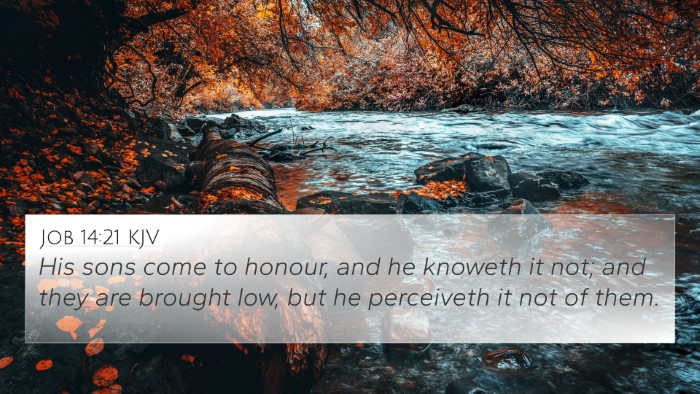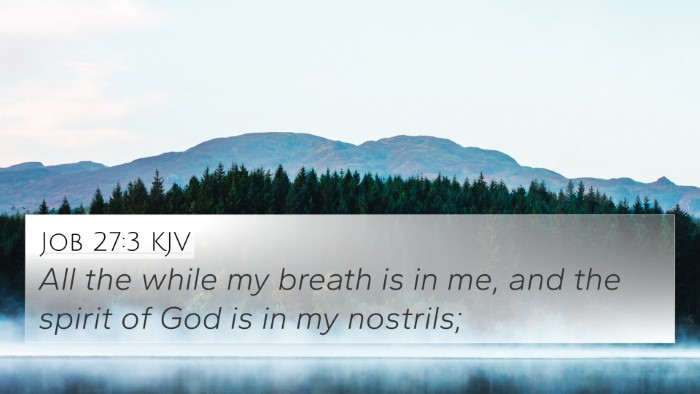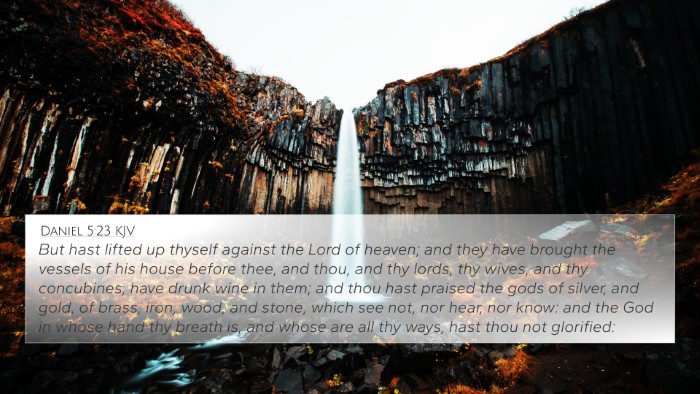Understanding Psalms 146:4
Psalms 146:4 states: "His breath goeth forth, he returneth to his earth; in that very day his thoughts perish." This verse encapsulates the transient nature of human life and the mortality inherent to all living beings. The understanding of this verse across various public domain commentaries reveals profound themes regarding life, death, and reliance on God.
Verse Meaning and Insights
This psalm fundamentally reflects on the fragility of human existence. When the breath of life leaves a person, they return to the earth, symbolizing the inevitability of death. In that moment, all human thoughts and aspirations cease. The message serves as a stark reminder of the limitations of human strength and wisdom.
Commentary Insights
- Matthew Henry: Henry emphasizes that the psalmist contrasts the ephemeral nature of humans with the everlasting nature of God. His commentary suggests that those who rely on mortals for help are ultimately let down, as human plans are fleeting.
- Albert Barnes: Barnes provides a practical reflection on the verse, noting that it reinforces the idea that human life is contingent and temporary. He urges believers to place their trust in God, who is eternal and all-sustaining.
- Adam Clarke: Clarke elaborates on the implications of this mortality, showcasing how it reminds individuals to focus on spiritual matters over earthly pursuits. He underscores the futility of human thoughts and ambitions upon death.
Thematic Connections and Cross-References
The themes presented in Psalms 146:4 resonate throughout Scripture, establishing rich connections within the broader Biblical narrative. Here are several Bible verses that relate to this theme of mortality and the fleeting nature of life:
- Ecclesiastes 3:20: "All go to one place; all are from the dust, and to dust all return." - This verse echoes the mortality expressed in Psalms 146:4 and highlights the universal experience of death.
- James 4:14: "For what is your life? It is even a vapor that appears for a little time and then vanishes away." - This reinforces the transient nature of human existence.
- Job 14:1-2: "Man who is born of woman is of few days and full of trouble. He comes forth like a flower and fades away." - Job's reflection conveys similar sentiments about life's brevity.
- Genesis 3:19: "For you are dust, and to dust, you shall return." - This direct connection to creation highlights the cycle of life and mortality.
- Isaiah 40:6-8: "The grass withers, the flower fades, but the word of our God stands forever." - This reference contrasts human frailty with the permanence of God's word.
- 1 Peter 1:24-25: "All flesh is as grass, and all the glory of man as the flower of the grass. The grass withers, and its flower falls away, but the word of the LORD endures forever." - A reminder of the fleeting nature of life sequentially emphasizes the enduring nature of God.
- Luke 12:20: "But God said to him, 'Fool! This night your soul will be required of you; then whose will those things be which you have provided?'" - A stark reminder of the suddenness of death and the futility of earthly possessions.
Application and Reflection
In contemplating Psalms 146:4, believers are encouraged to anchor their hope in God rather than in human endeavors. This verse serves as a springboard for deeper theological insights and practical reflection on life, emphasizing reliance on the eternal rather than the temporary.
These resources can assist in exploring the connections between Bible verses and facilitate a deeper understanding:
- Bible Concordance: A tool to locate specific verses and their cross-references.
- Bible Cross-Reference Guide: A guide to navigate thematic relationships between various scriptures.
- Bible Chain References: For tracing themes through interconnected passages.
How to Use Cross-References
Engaging with Bible cross-references can deepen one's understanding of Scripture. Here are methods for effective cross-referencing:
- Identify Themes: Look for common themes across verses that highlight human mortality and reliance on God.
- Comparative Bible Verse Analysis: Compare different passages that provide insight into life and death.
- Bible Study Methods: Utilize cross-referencing methods during group studies or personal reflection.
Conclusion
In summary, Psalms 146:4 serves as a profound reminder of humanity’s fragility and the importance of placing trust in God. By utilizing tools for Bible cross-referencing and exploring thematic connections, believers can uncover the richness of Scripture and pack deeper meaning into their spiritual walks.
